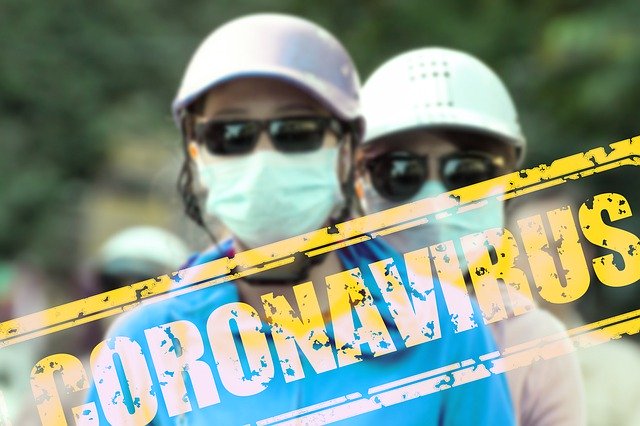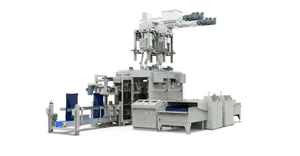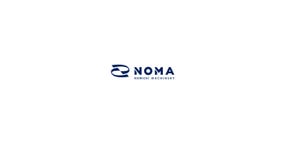March 2, 2020

The outbreak of the novel coronavirus (COVID-19) is causing massive financial and operational headwinds for food and beverage companies operating inside China and beyond. Cargill, Mondelez International, the Coca-Cola Co., and other of the top manufacturers are scrambling to protect their workers, safeguard their supply chains, and adjusting earnings estimates as COVID-19 spreads.
As the number of those infected with the respiratory disease (also known as 2019-nCov) grew throughout China, and several cases popped up in other countries around the world, Chinese authorities attempted to curb the spread of the coronavirus by locking down Wuhan and several other major cities, causing economic activity to grind to a halt in parts of the nation. In turn, many foreign governments, including the US, restricted travel to China in response to the outbreak.
“There is a general shortage of labor, interruption of logistics, as well as a reduction of demand and supply. Consequently, this is negatively impacting the production, distribution, and inventory levels across the F&A spectrum,” banking and financial services firm Rabobank said in a report published in late February.
More than 80,000 cases have been reported worldwide. While no one can predict how much COVID-19 will impact the food and beverage manufacturers in 2020, some signs indicate that the disease will continue to affect the global food & beverage industry for months to come. Powder & Bulk Solids created this timeline to show how some major food and beverage companies have responded to the outbreak so far.
CORONAVIRUS IMPACTS ON FOOD & BEVERAGE INDUSTRY
Dec. 31, 2019 – China informs the World Health Organization (WHO) that mysterious pneumonia-like illness was spreading in Wuhan
Jan. 7, 2020 – Chinese researchers determine that the illness is a unique coronavirus.
Jan. 11, 2020 – The first coronavirus-related death is reported in China.
Jan. 21, 2020 – Officials announced the first coronavirus case in the US.
Jan. 23, 2020 – Wuhan is placed under quarantine, blocking travel to and from the city.
Jan. 24, 2020 – American agribusiness Cargill asks its workers to delay or cancel plans for business travel to Wuhan, NBC News affiliate KARE reported.
Jan. 25, 2020 – The Lunar New Year holiday begins in China.
Jan. 27, 2020 – Chinese government extends Lunar New Year holiday period to February 2.
Jan. 28, 2020 – 15 cities containing about 50 million people are also quarantined by the Chinese government by January 28, Business Insider reported. A Kraft Heinz spokesperson tells The Wall Street Journal that the company banned its employees from traveling to and from China to minimize the risk of exposure or transmission of the disease.
Jan. 29, 2020 – A Reuters article notes that Anheuser-Busch InBev, the maker of Budweiser beer, has stopped work at its brewery in Wuhan. The CEO of meat processor JBS SA tells Reuters that he does not believe coronavirus will not cause a decline in meat imports in China.
Jan. 30, 2020 – WHO makes a statement that the coronavirus outbreak is a “public health emergency of international concern.” Hershey Co. CEO Michelle Buck tells listeners on an earnings call that the outbreak will likely not have “as big an impact as we may see from some others” because the bulk of its business is in North America. However, Buck cautioned that the chocolate manufacturer expects its business in China will be affected. In another earnings call, Archer Daniels Midland (ADM), CEO Juan Luciano opines that the effects on the company will be determined by the impacts the coronavirus has on global gross domestic product, coverage by Reuters said. Beverage giant Coca-Cola Co. reveals that its offices and “a good number” of its plants are closed in China during a Q4 2019 earnings call.
Jan. 31, 2020 – US President Donald J. Trump signs a proclamation restricting the entry of immigrants and non-immigrants that are at risk of transmitting the coronavirus.
Feb. 2, 2020 – The Lunar New Year holiday period pends. A coronavirus-related death is reported outside of China for the first time.
Feb. 10, 2020 – Deaths from coronavirus reach 908 in China.
Feb. 11, 2020 – WHO officially names the virus “coronavirus disease 2019,” or “COVID-19.” Officials from Ingredion tell investors in an earnings call that one of the firm’s two manufacturing plants in China is closed. Chief Financial Officer Jim Gray explains the company’s main concern is not with production, but demand: “We just have a delay in some of our people coming back to work. We have sufficient inventories. It’s really about what the delay in demand for shipping might turn out to be.”
Feb. 13, 2020 – Hugh Johnston, the CFO of PepsiCo, tells Yahoo Finance that the impacts of the outbreak were “not material” on the company’s global business because less than 2% of its sales are generated in China. “We have six plants there, and five are up and running. We actually expect the Wuhan plant to be up and running in the coming days as well,” Johnston said. Kraft Heinz CEO Miguel Patricio states that several of the firm’s eight manufacturing facilities in China are closed and that its supply of ingredients made from raw materials imported from China may be impacted in an interview with Bloomberg. “It is prudent for everyone to find possible alternative suppliers,” Patricio says. Trade group USA Poultry & Egg Export Council tells Reuters that shipments of chicken from the US to China are being redirected to other ports in Asia.
Feb. 14, 2020 – The first coronavirus-related death in Europe is reported in France.
Feb. 18, 2020 – Reuters reports that several confectionery and snack maker Mondelez International manufacturing plants in China were operating under capacity. The company was also said it was dealing with increased transportation costs in the country because there is a shortage of trucks. American food firm General Mills says about half of its Häagen-Dazs ice cream shops in China are temporarily shuttered as a result of the outbreak, the Minneapolis Star-Tribune reports.
Feb. 19, 2020 – Speaking at the CAGNY 2020 Investor Conference, Noel White, the chief executive officer of Tyson Foods, says that shipments of its protein products to China have slowed in the preceding weeks and operations have been interrupted at its ventures in the country because of COVID-19, according to coverage by Talk Business & Politics. Mars Inc. Chief Executive Officer Grant Reid tells Yahoo Finance that “nobody really knows the ongoing impact” of COVID-19 because it “depends on how far this goes.” However, the confectionery and food manufacturer says most of its plants in China were back in operation.
Feb. 20, 2020 –Business in China has slowed for SPAM maker Hormel because its three plants in the country primarily supply foodservice and restaurant customers, and many people have stopped dining out, according to the Minneapolis Star-Tribune. The company’s chief executive officer, Jim Snee, tells the newspaper that government-mandated travel restrictions and quarantines prevented most of Hormel’s workers from returning to their posts after the Chinese Lunar New Year holiday.
Feb. 21, 2020 – Beverage company Coca-Cola issues a statement that it is “following government guidelines and taking precautionary steps” to prevent COVID-19 from spreading, including providing its workers in China with face masks and hand sanitizers, installing temperature screening equipment in its manufacturing sites and offices, and establishing health monitoring systems across its footprint in the country. The company expects organic revenue to slip by one or two points in Q1 2020 because of the coronavirus, as well as a two- to three-point slip on unit case volumes.
Feb. 24, 2020 – A report on the impacts of the coronavirus on China’s food and agribusiness industries released by banking and financial services firm Rabobank observes: “There is a general shortage of labor, interruption of logistics, as well as a reduction of demand and supply. Consequently, this is negatively impacting the production, distribution, and inventory levels across the F&A spectrum.”
Feb. 26, 2020 – US President Donald J. Trump names Vice President Mike Pence to lead the federal government’s efforts to combat the coronavirus. Swiss food and beverage giant Nestle put a moratorium on business travel until March 15 for more than 290,000 workers across its global footprint.
Feb. 27, 2020 – “We don’t anticipate any disruption at all,” Keurig Dr. Pepper (KDP) CEO Bob Gamgort states during an earnings call in response to an analyst’s question on whether the situation in China will cause any ripples in the beverage maker’s supply chain. “The first thing that we did was geo-diversified our supply chain for our brewers outside of China,” the executive tells callers. Most of the company’s business is in North America. Cargill asks its employees to halt all non-essential international business travel for a two-week period. Beer brewer Anheuser-Busch InBev says it anticipates revenue will drop by $285 million during the first two months of 2020 because of “a significant decline in demand in China in both on-premise and in-home channels.”
Feb. 28, 2020 – Some 80,000 cases of coronavirus and about 2,800 coronavirus-related deaths are reported across the globe. Part of Coca-Cola’s annual report notes that the company is facing supply chain issues with artificial sweeteners, including sucralose, sourced from China, CNN reports. “We have initiated contingency plans and do not foresee a short-term impact due to these delays,” the company wrote in the document. “However, we may see tighter supplies of some of these ingredients in the longer term should production or export operations in China deteriorate.”
For more news headlines, articles, and equipment reviews, visit our Equipment Zones
More Food & Beverage Industry articles:
Avena Foods to Construct New Oat Processing Facility
You May Also Like


